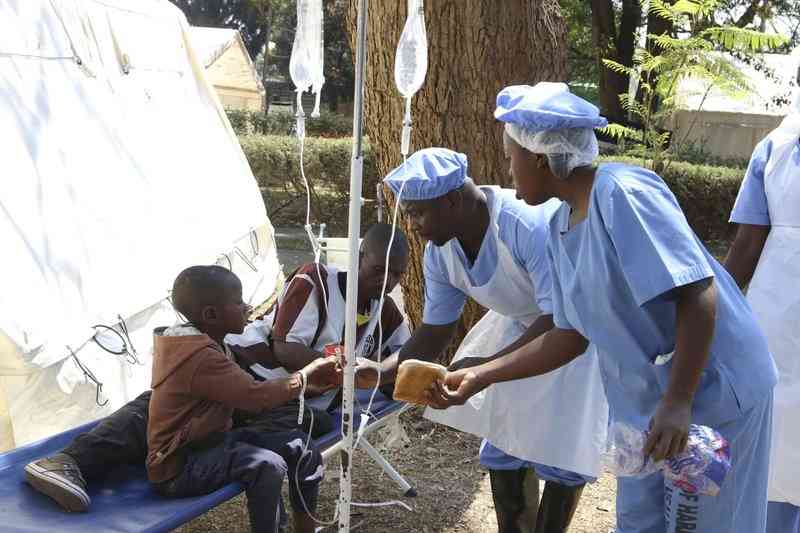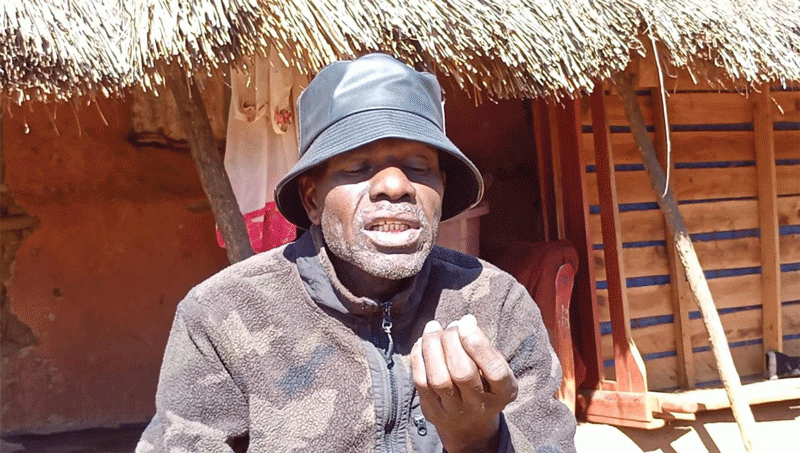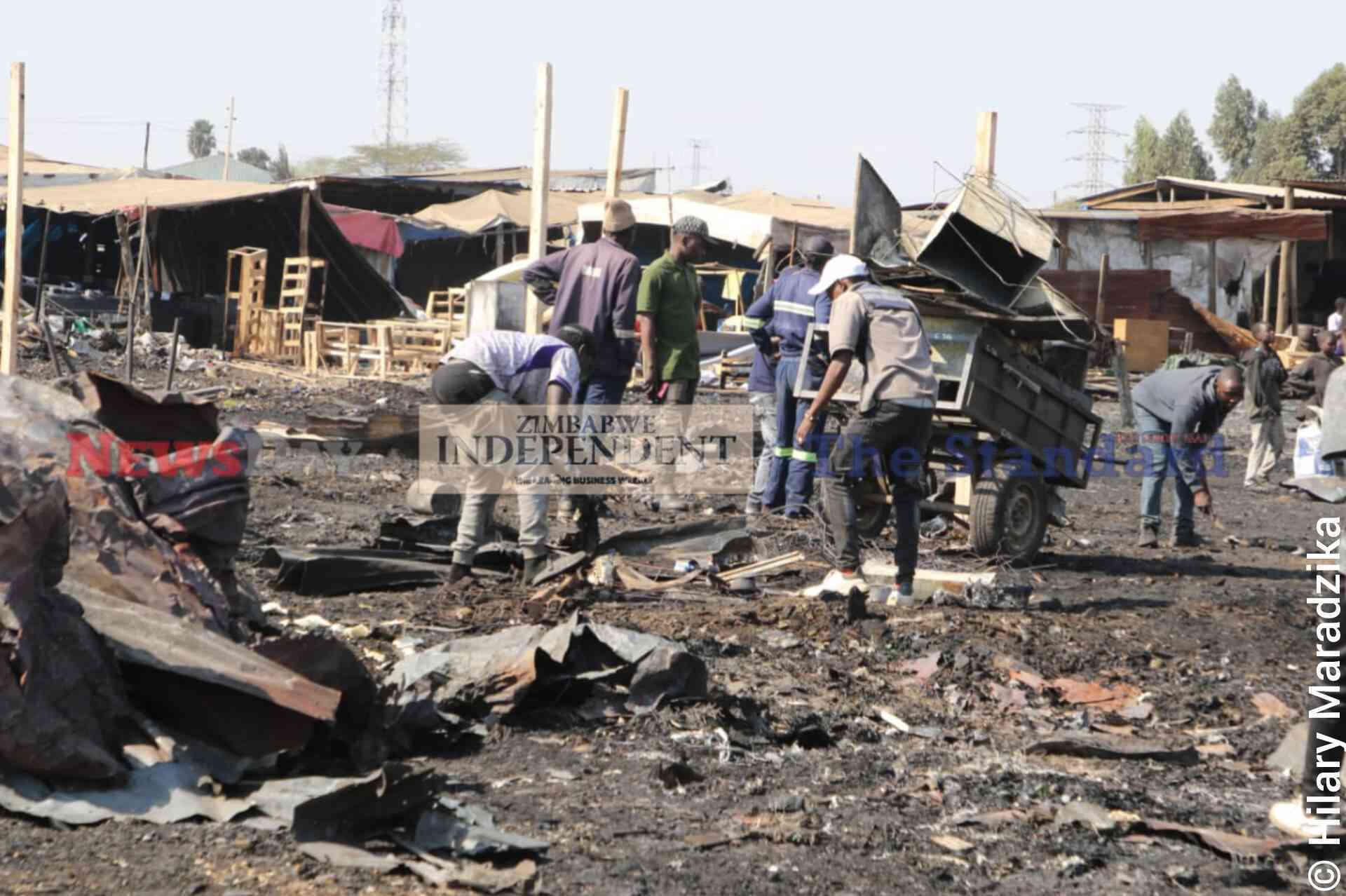
SIXTEEN years after the first cholera pandemic, the Zimbabwean authorities have finally met their biblical damascene moment that urban development has to be strictly regulated because the slums are always a ticking health bomb.
Can the regime be trusted to fully execute its new policy or it’s another gimmick to pacify citizens?
Cholera is a medieval disease primarily caused by poor sanitation. It is a waterborne disease which occurs as a result of water sources being infected by faecal matter.
In simple terms, people drinking water contaminated with raw sewage.
It is common cause that many of the developments in Harare, which in many respects is always the epi-centre of the cholera pandemic, has so much uncontrolled housing developments with no water and sewer reticulation.
In many of the developments the residents have blair toilets and deep wells within a 300 square metre stand.
In older suburbs, the sewer pipes are always bursting and raw sewer flowing in the streets.
Urban settlement standards have been on the decline since the International Monetary Fund-induced economic structural adjustment programme implemented between 1990 and 1995.
- Chitungwiza sewer infrastructure collapses
- Chitungwiza sewer infrastructure collapses
- LSU runs dry, students resort to open defecation
- Govt must prioritise water provision
Keep Reading
Many people were retrenched and had no decent housing. They had to build houses mainly through cooperatives and engage in informal trade like furniture making, welding, tuckshops, car maintenance, panel beating and spay-painting, among other things.
By the turn of the century, the socio-economic conditions had taken a nasty turn.
Disgruntled retrenched workers, unemployed graduates, deteriorating public service delivery and the continued weakening of the local currency against hard currencies were at a peak and a fertile political environment was at hand, particularly in urban and peri-urban centres.
The newly-formed labour-backed party — MDC — won 57 parliamentary seats out of the 120 contested seats in the 2000 parliamentary elections.
It is argued in many circles that Zanu PF survived through the use of overt violence against opposition activists and the violent farm invasions, particularly post the February 2000 constitutional referendum loss.
The government fearing to lose power implemented Operation Murambatsvina in 2005, which displaced over 750 000 families who were living in illegal structures and unregulated areas.
This prompted the United Nations to send a special representative Anna Taibajuka to monitor the situation and try to assist the government to resettle the displaced persons.
It should be remembered that this displacement was not informed by public health concerns, but by political expediency.
Immediately after the 2008 election, Zanu PF went into an aggressive resettling of people on peri-urban land.
This changed the electoral boundaries of many urban constituencies and Zanu PF hoped to benefit from such constituencies, which it did.
A half-hearted attempted, Operation Garikai/Hlalani Kuhle, to have regularised developments was implemented, but was never completed.
It left thousands of incomplete houses without roads, water or sewer connection further exacerbating the potential for disease such as cholera.
These are the same settlements that today, in 2024, remain hotbeds of the cholera epidemic.
It should be remembered that cholera is not new in Zimbabwe. The country experienced another cholera outbreak in 2008. Cholera is now cyclical.
It is in this context that Cabinet in its Tuesday sitting made the following resolutions: “Going forward, Cabinet resolved on the following measures in order to curb disease outbreaks: Enforcement of onsite servicing of new residential areas/suburbs before residents take occupation of houses,” it said.
This is not new. The government is not serious. The horses have already bolted.
Zimbabwe needs a new housing policy and effective upholding of the rules on settlements. I wonder if the government is really serious about these resolutions.
This can be seen by the government’s eagerness to develop a new city in Mount Hampden.
A city for the elite, yet there is no proper plan on city regeneration in areas such Makokoba, Mbare or Musana yeNzou in Kadoma.
Cabinet said something more interesting on artisanal miners. This is a group of people who have existed on the benevolence of the State.
It said: “Enforcement of the requirement for small-scale miners operating in mining areas to prioritise the provision of water and sanitation facilities in mine compounds. The enforcement of the removal of unregistered artisanal miners along Mazowe River to avert further spread of cholera.”
Does the regime have the stomach to stop illegal mining? It does not have to since it benefits from the illegal activities, especially among the political elites.
This is made clear in the statement by the United States when it moved Zimbabwe sanctions to be under the Global Magnitsky Act.
The US said Zimbabwe leaders were involved in mineral smuggling.
One cannot say Zimbabwe is now ready for having planned settlements. Cholera cannot be the Damascene moment on urban planning.
There could be some catch to it. Time will tell. However Zanu PF cannot be trusted based on its history of sponsoring illegal settlements and benefiting from them politically.
- Paidamoyo Muzulu is a journalist based in Harare. He writes here in his personal capacity.











